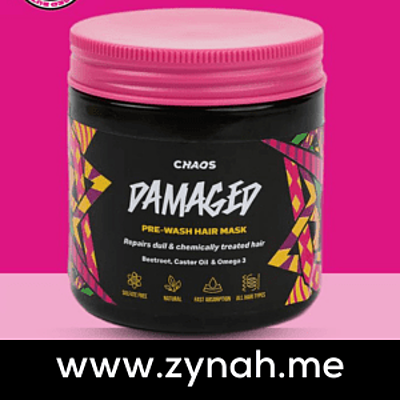One of the world's healthiest diets has long been regarded as the Mediterranean diet. It is a diet low in processed foods, added sugars, and red meat and high in vegetables, fruits, whole grains, nuts, and olive oil. This diet follows the customary eating habits of the Mediterranean people, who are renowned for living long lives and having a low incidence of chronic illnesses. This article will discuss the pros and cons of the Mediterranean diet, so keep reading to know more.
7 Exercises To Strengthen Your Pelvic Floor For An Easier Delivery
What is The Mediterranean Diet?
The Mediterranean diet is unquestionably the best option if you're searching for a diet that has scientific support. It is not just rich in nutrients but prioritizes tasty meals above restrictive eating. Countries around the Mediterranean Sea have adopted this dietary pattern, which has been associated with a lower risk of diabetes, cancer, heart disease, and other chronic illnesses.
Of course, any dietary regimen will inevitably provide some difficulties. For instance, some people may find it difficult to stick to the restrictions on red meat and processed sugar.
Shop on Zynah.me by Fustany, more than 1000 beauty products and 50 brands ✨💄
How to Clean Your Vagina After Your Period Is Over

How to follow The Mediterranean Diet?
The Mediterranean diet mostly consists of plant-based foods. Additionally, it is a non-restrictive diet that frequently consists of items like:
1- All types of fruits and vegetables
2- Whole grains: oats, cereals, pasta, bread, and brown rice
3- Legumes: beans, chickpeas, soy, lentils, and peas
4- Nuts and seeds, such as macadamia, sesame, pumpkin, chia, peanuts, pistachios, pine, hazelnut, and walnut
5- Spices and herbs, such as cumin, bay leaf, pepper, oregano, basil, and rosemary
6- Other vegetable oils (sesame, walnut, canola, and avocado oil) in addition to olive oil
7- Fish and seafood (fatty fish such as salmon, mackerel, and sardines are recommended) should be consumed at least twice a week
8- Eggs and poultry (small servings, a few times a week; preference is for white poultry meat)
9- Dairy products low in fat (in modest amounts, a few times a week)
10- Red lean meat (restricted to a few times per month)

10 Yoga Poses That Can Significantly Improve Your Posture
Pros of the Mediterranean Diet
1- Improving heart health
Nuts, olive oil, and fatty fish are good sources of monounsaturated and polyunsaturated fats, which are common in the Mediterranean diet. It has been demonstrated that these fats raise blood pressure, lower cholesterol, and lower the possibility of heart disease.
2- Weight management
The Mediterranean diet promotes the intake of a wide range of nutrient-dense foods and is not at all restrictive. Due to its high fiber and protein content, which can promote satiety and decrease overeating, studies have indicated that the Mediterranean diet may aid in weight loss and weight control.
3- Enjoyable and sustainable
Eating a plant-based, satisfying diet is possible with the Mediterranean diet. It highlights the value of sharing meals with loved ones and friends and does not call for calorie counting or restriction.
4- Easy rules
The Mediterranean diet's greatest feature is how simple it is to stick to. It may have many healthy food recommendations, but it doesn't ban any food groups, allowing for a long-lasting diet plan with numerous health advantages. Sometimes trendy diets push you to give up your favorite foods; on the Med diet, on the other hand, you may be able to incorporate them in your meals—just moderation is key.
5- Nutritious diet
This diet's inclusive and non-restrictive characteristics enable people to consume all food groups in moderation while promoting the consumption of whole foods, premium protein, antioxidants, healthy fats, and fiber. Because it stresses the eating of nutrient-rich foods, the Mediterranean diet is essentially very nutritious. Additionally, this lowers the chance of malnutrition and related nutrient shortages, which are frequent side effects of other more strict diets like the keto and vegan ones.
6- Affordability
In actuality, the Mediterranean diet is not expensive, unlike what many people believe. In fact, you will find that the majority of individuals who follow this diet are common and impoverished. Basic components of the Mediterranean diet, beans, legumes, pasta, and cheese are also extensively available, reasonably priced, and easy to find at most grocery stores.

Cons of the Mediterranean Diet
1- Eating a lot
The most annoying thing about this diet is that it doesn't restrict food groups or be demanding about how much you eat—although it does advise individuals to eat in moderation. It should go without saying that some diet enthusiasts find it challenging to control portion sizes or practice mindful eating. Eating in excess could have the same impact as if you hadn't changed from your previous diet to this one before..
2- Vague rules
One drawback of the Mediterranean diet that is difficult to ignore is that there isn't a set of rules or a rigid eating schedule for people to follow. Naturally, this causes people to overindulge in their portions and occasionally even become confused. The diet, for instance, makes use of ambiguous terms like "low to moderate intake," "abundance," and "often." Moreover, there are no clear guidelines for total calorie intake or physical activity, so followers of this diet—especially the new ones—are left in the dark.
3- Doctor’s approval first
The main argument for and against the Mediterranean diet is that there is a ton of research supporting its health benefits. That being said, there are a few things to keep in mind, particularly if you have any medical conditions that could worsen as a result of the food you eat, including the Mediterranean diet. That’s why you need to talk to your doctor before following this diet and get their approval.
4- Limited food options (arguable)
Consuming processed foods, red meat, and added sugars is limited when following a Mediterranean diet. For people who are accustomed to eating a diet that includes these foods, this may present a problem since it may restrict their food options and make following the diet more difficult. However, isn’t that the whole point of following a nutritious diet? That’s why this point is open to disagreements.
Now it’s your decision whether you want to follow this diet or not. Make sure you read more about it and ask other people if they tried it. Finally, if we may put our two cents in, this diet is nutritious, easy-to-follow, and even with its cons, it is still good as long as you manage the portions of your meals.





































